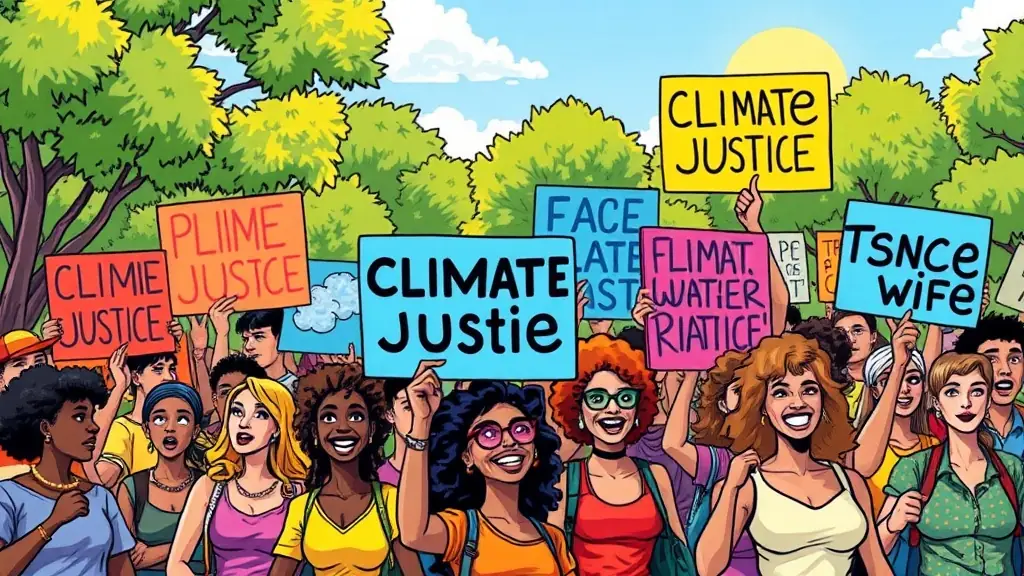Climate justice is a concept that emphasizes the need for equitable solutions to the climate crisis, recognizing that vulnerable communities often bear the brunt of environmental degradation. These communities, which are typically marginalized due to socioeconomic factors, face greater risks from climate-related disasters, such as floods, droughts, and extreme weather events. Addressing climate justice means ensuring that all voices are heard in the fight against climate change and that solutions are inclusive and equitable.
The intersection of social justice and environmental issues highlights the importance of empowering marginalized communities. By providing them with resources, education, and support, we can help them adapt to the impacts of climate change and advocate for their rights. This includes promoting policies that prioritize the needs of these communities and ensuring that they have access to clean air, water, and safe living conditions. Climate justice is not just an environmental issue; it is a human rights issue that requires urgent attention.
As individuals, we can contribute to climate justice by educating ourselves and advocating for policies that promote equity in climate action. Supporting organizations that work towards environmental justice and amplifying the voices of marginalized communities can create meaningful change. By standing in solidarity with those most affected by climate change, we can work towards a more just and sustainable future for all.

